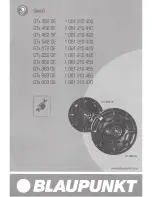
© 2020 SELTECH - All rights reserved
6
Back volume
Min. wall thickness to avoid wall resonating (depends on material)
Avoid « wall-to-wall-design » (e.g. antenna module)
Vibrations can cause rattling noise
Use « sandwich » for applying the speaker (foam-gasket, speaker, hard
support at rear side)
No heat-radiating components inside the back volume
Etc.
… Mechanical robustness
































